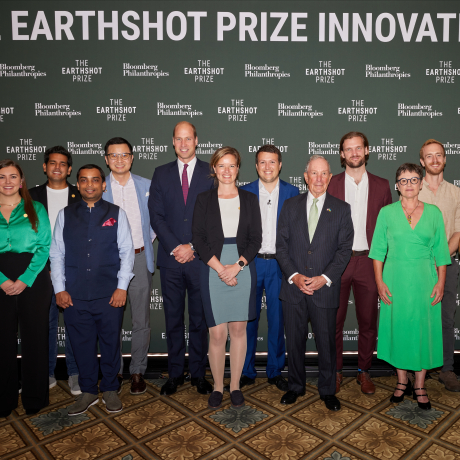A speech by The Duke of Cambridge at the third International Conference on the Illegal Wildlife Trade
Published
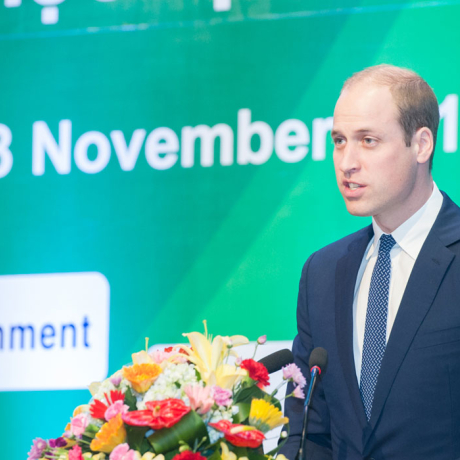
We can win this battle. And in doing so we can take a small, but very important step in reminding ourselves that we are capable of rising to the challenges of our age
Your Excellencies, Ministers, Ladies and Gentlemen,
I want to start by thanking the Vietnamese government for its leadership in hosting this conference in Hanoi.
We all know and applaud the fact that Vietnam is taking steps to curb the wildlife trade in this country. We all know, too, what a welcome signal this is in a region where so much needs to be done to halt the demand for wildlife products.
The Vietnamese Government knew that hosting this conference would shine a spotlight both on its good work and ongoing challenges. That is not always a comfortable thing to do. But it is the brave and right thing to do and I congratulate you for your leadership.
Your first ever destruction of illegally traded ivory and rhino horn at the weekend provides a powerful example ahead of this conference, and we look forward to hearing about the further actions you plan to take.
Two years ago, we gathered in London at the first International Conference on the Illegal Wildlife Trade. At that time, we had a growing awareness of the severity of the crisis animal populations were facing. But we lacked a plan, the tools, and the partnerships needed to confront it.
Two years on, we come together again against a very different backdrop. And I think it is fair to say that London really was a turning point.
Since then we have seen unprecedented partnership between African governments to work together to fight poaching through the Elephant Protection Initiative.
We have seen China and other countries in Asia take leadership on confronting the demand for IWT products within their own borders.
We have seen the United States provide a blue print for how developed economies need to acknowledge their own demand challenges.
We have seen the transportation industry come together under the Buckingham Palace Declaration to take concerted action to shut down trafficking routes.
And we have seen the world come together under IUCN and CITES to finally call for an end to the ivory trade.
More than all this, we have seen how citizens from around the world put pressure on political leaders to take action to halt the destructive trade.
There is much to be proud of and I want to make sure we take confidence from what has been achieved. We are on the right side of history.
But here is the problem: we know that we aren’t moving fast enough to keep up with the crisis. Rhinos, elephants, pangolin, lions - they are all still being killed in horrifying numbers.
The Great Elephant Census published this summer confirmed our worst fears about the shocking 30 per cent decline in the African elephant population in just seven years.
So while we’ve made progress, the truth is we are still falling behind. A betting man would still bet on extinction.
What we know is that the last two years have seen us get much more organised and take on a greater sense of urgency.
But the organised crime syndicates we are up against are much more agile than we are. We are getting cleverer, but we need to admit that they are getting much cleverer as well.
Their methods on the killing fields of Africa and Asia are more sophisticated than they were two years ago. The poachers are learning to be quiet and are much harder to track.
Their brutality continues to escalate with many more rangers killed since we gathered in London two years ago.
Their trafficking networks have proven more resilient than we might have hoped. We are working harder at our ports and borders, but most illegally poached products are still slipping through the net. The seizures of smuggled ivory at Vietnam’s sea and airports in recent weeks are a welcome sign of Vietnam’s commitment, but also remind us of the ongoing scale of the trade.
And attitudes on the use and purchase of illegal wildlife trade products are proving harder to shift than we might have liked.
In this part of the world we have to acknowledge the truth that newly aspirational consumers are still demanding more, not less ivory and rhino horn.
That is the stark reality facing this conference. And it presents a number of tough questions. I just want to outline a few:
- The ongoing debate about domestic ivory trading; China has already signalled a total ban, the USA has instituted one, and other nations including the United Kingdom are considering it. We know now what previous generations did not – ivory treated as a commodity is the fuel of extinction. Ivory is not something to be desired and when removed from an elephant it is not beautiful. So, the question is, why are we still trading it? We need governments to send a clear signal that trading in ivory is abhorrent.
- Second, are we doing enough to confront the organised criminal syndicates behind the Illegal Wildlife Trade and bringing them to justice? After all, these people not only threaten to wipe out animal populations, but they leave a wave of violence and corruption behind them. They are a threat to the safety of our communities and to the strength of our institutions.
- Finally, are we doing enough to work with business and civil society to make the changes we need to see? I am very proud of what we achieved with the Buckingham Palace declaration for the transportation sector. We now need to implement its commitments. But do we also need to ask what others should do? Who is convening the global antiques market? Are we doing enough with the traditional medicine community? What role should the tourism industry play in Africa? And what signals can the fashion and luxury sector send to change attitudes in emerging markets?
These are big questions, but I believe that in answering them we will build a campaign of action and awareness that is truly up to the crisis we are facing. We will discover the practical steps we need to add to our plan and we will protect the momentum we have built over the last two years.
We are all here because we care about saving these animals from extinction and protecting the communities that rely on them and safeguard them. But we know that many others do not share our sense of urgency. In a difficult moment in time, many would ask why this issue warrants priority and effort.
I firmly believe that halting the extinction crisis and ending the illegal wildlife trade presents a real chance to demonstrate our collective confidence that we have the power to rise to the big problems of our time. If we cannot tackle this, it is hard to see how we will be effective in overcoming the other global challenges that face us.
Compared to other global problems, IWT is remarkably uncontroversial - almost everyone acknowledges the need to stop it and everyone acknowledges that the extinction of our iconic species would be a great loss for humanity. It is only a test of will.
And compared to other global problems, I really do believe it is relatively straightforward to solve. We know where the animals are that are being killed. We know through which ports, airports, and highways their products are being shipped from killing field to market place. And we know which markets are fuelling the demand for the entire trade.
We can win this battle. And in doing so we can take a small, but very important step in reminding ourselves that we are capable of rising to the challenges of our age – a message that our young people need to hear loud and clear.
I wish you luck for a successful conference. And I thank you for the actions you will take to protect the natural heritage we all want to pass onto to our children and grandchildren.
Thank you.
Related content
The Prince of Wales attended the United for Wildlife Summit
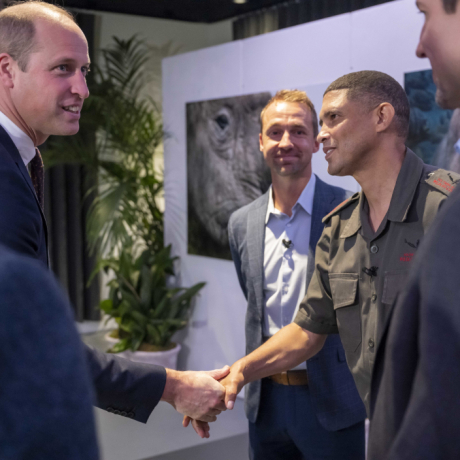
The Duke of Cambridge visited Microsoft Headquarters to learn how new technology is disrupting the illegal wildlife trade

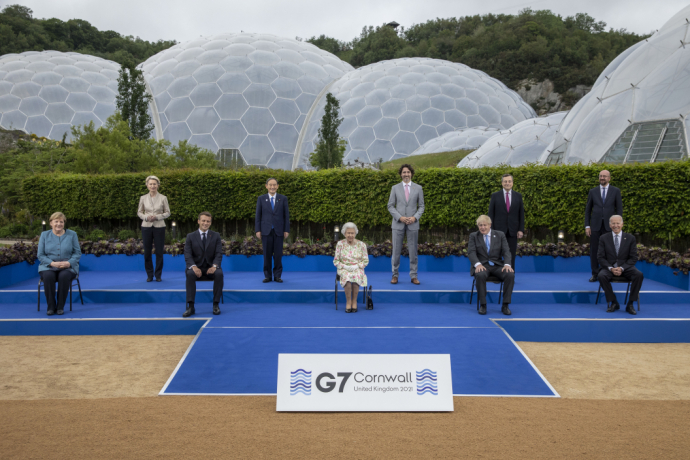
A speech by The Duke of Cambridge at the UK-Africa Investment Summit
Your Excellencies, ladies and gentlemen. On behalf of Her Majesty The Queen, Catherine and I are delighted to welcome you to Buckingham Palace for this reception to mark the...
A message from The Duke of Cambridge to the people of Oman
I offer my heartfelt condolences to the Omani people, and wish to send a personal message of friendship as Oman mourns the death of His Majesty.
The Duke of Cambridge visits Kuwait and Oman
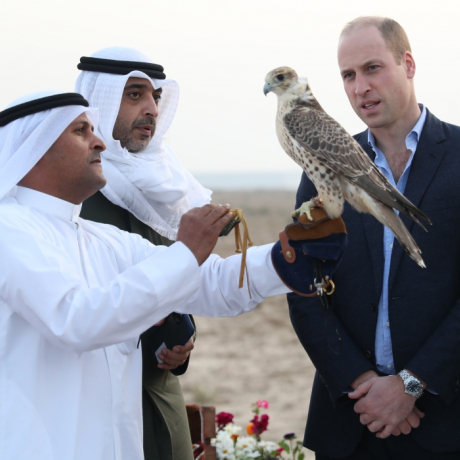
A speech by The Duke of Cambridge at the Tusk Conservation Awards
My generation and those following are acutely aware that we cannot simply carry on as we are.
The King's Cup
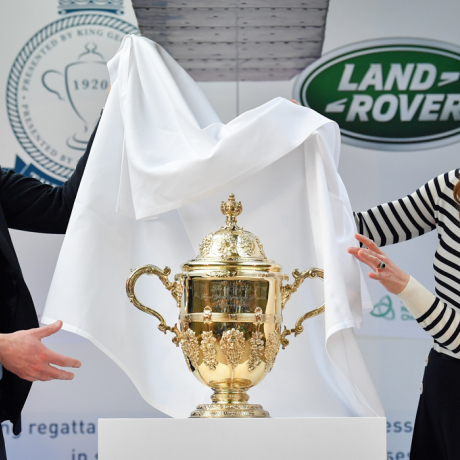
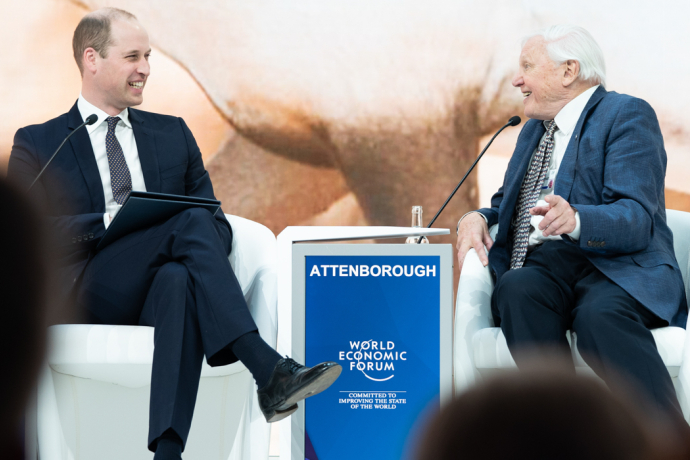
The Duke of Cambridge unveils new United for Wildlife declaration to tackle illegal wildlife trade
A speech by The Duke of Cambridge at the United for Wildlife Financial Taskforce Declaration Signing
This trade has become the fourth largest criminal trafficking enterprise in the world, with billions of pounds flowing into the black market.
The Duke of Cambridge gives a speech at the Tusk Trust Ball
Enormous strides have been made in tackling the threat posed to so many species by the illegal wildlife trade.
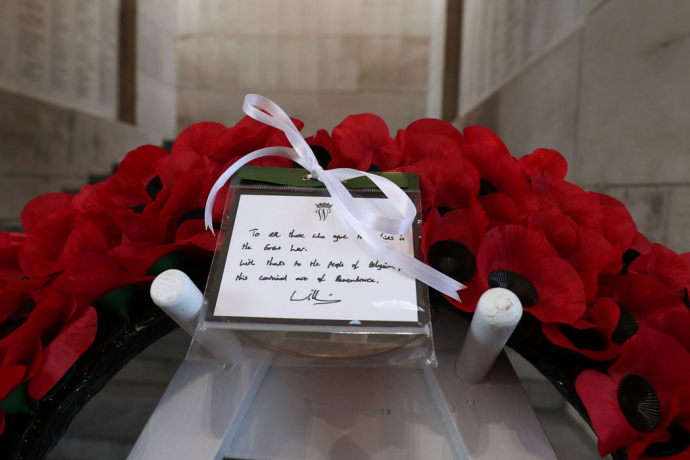
Reading by The Duke of Cambridge at the Last Post ceremony in Belgium
We extend our deep gratitude to the Last Post Association and the people of Ieper for this daily act of homage in honour of our fallen
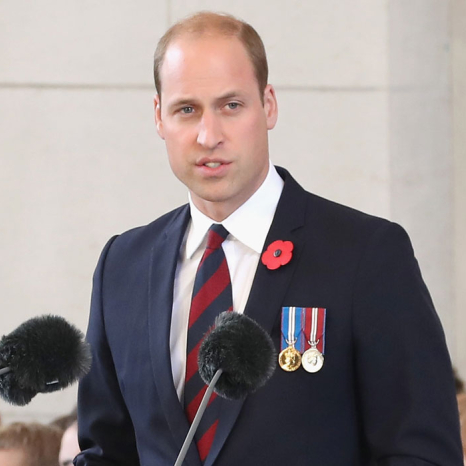
The Duke of Cambridge's speech at The Queen's Birthday Garden Party in Poland
Catherine and I are delighted to be embarking on our first visit to Poland, and we hope to return many times in the years to come
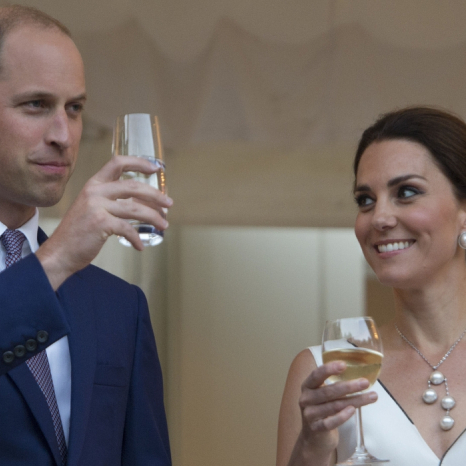
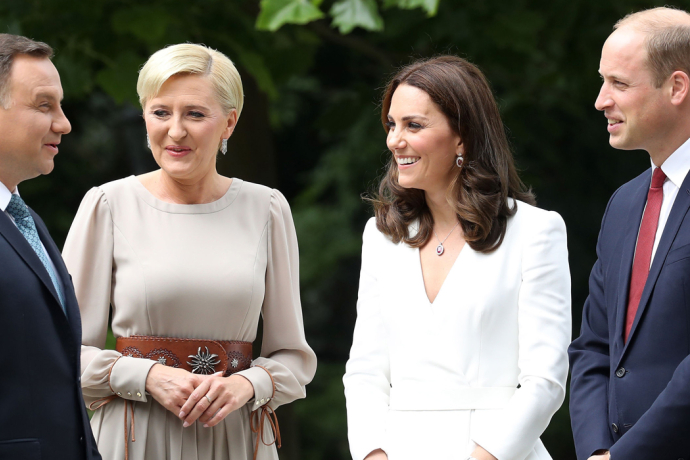
A speech by The Duke of Cambridge at the Tusk Awards 2016
Our natural heritage does not belong to us – I believe we simply hold it, in trust, for our children and grandchildren. Wherever we are in the world, we must all play our part...
A speech by The Duke of Cambridge at Tusk's Time for Change event, The Shard, London
We have the opportunity to end, once and for all, the mixed messages we have sent for too long about the value and desirability of wildlife products
The Duke of Cambridge to visit Dusseldorf , State of North Rhine-Westphalia, Germany
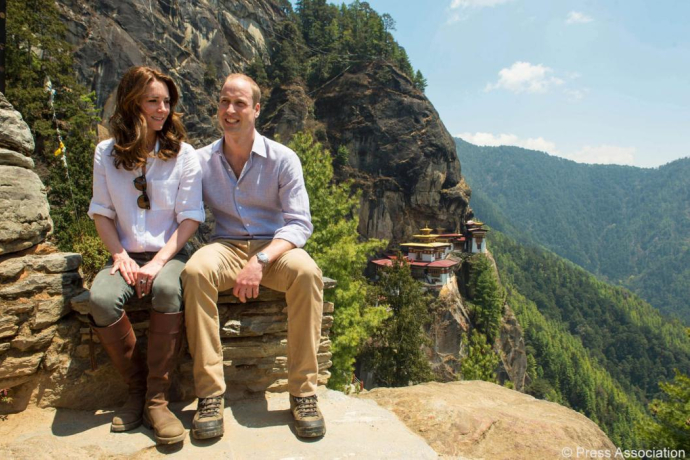
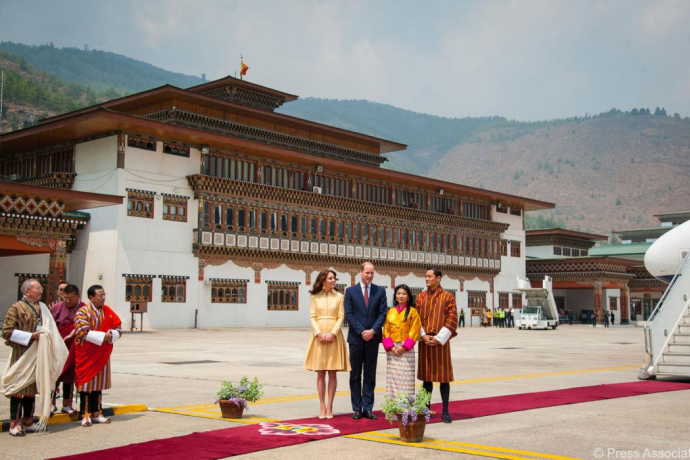
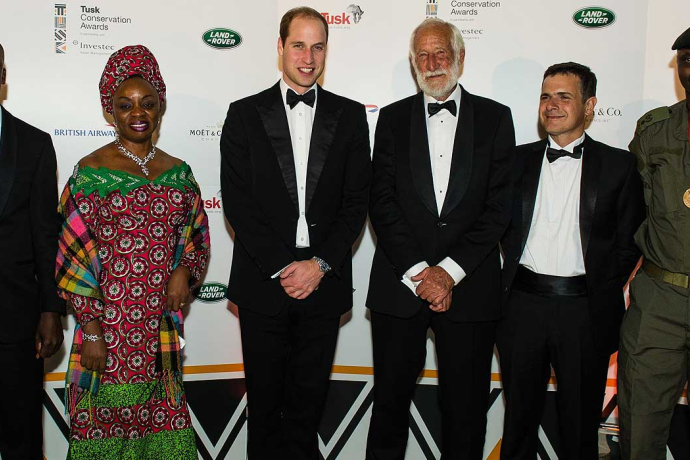
A speech by The Duke of Cambridge at the Tusk Conservation Awards 2015
This is the sharp end of the human impact of one of the world's most pressing conservation crises.
A speech by The Duke of Cambridge on the illegal wildlife trade for Chinese television
At this rate, children born this year – like my daughter Charlotte – will see the last wild elephants and rhinos die before their 25th birthdays.
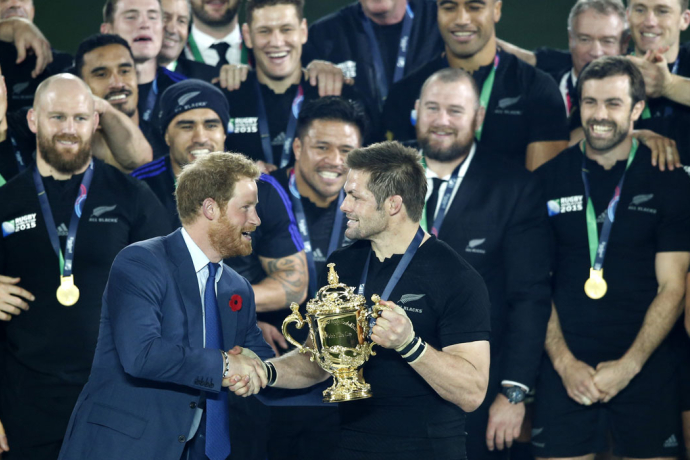
A speech by The Duke of Cambridge at Tusk's 25th Anniversary Ball
The need to protect wildlife in Africa is greater than ever before.
The Duke of Cambridge to deliver a speech on the illegal wildlife trade on Chinese television
A speech by The Duke of Cambridge about the illegal wildlife trade, at the Botanical Gardens in Xishuangbanna, China
As I believe you say in China, “one generation plants the trees in whose shade another generation rests”.
A speech by The Duke of Cambridge at the opening of the GREAT festival Shanghai
This GREAT Festival is a statement from the United Kingdom that we are excited about partnering with China in creativity and innovation.
A speech by The Duke of Cambridge at the Innovation is Great event, Tokyo, Japan
I can barely think of another country on earth which pays so much reverence to its ancient customs whilst also being so outwardly modern.
A speech by The Duke of Cambridge at the United for Wildlife reception, New York
You’re the lights at the end of the tunnel.
A speech by The Duke of Cambridge on the illegal wildlife trade at the World Bank
I am determined not to let the world´s children grow up on a planet where our most iconic and endangered species have been wiped out.
Programme confirmed for The Duke and Duchess of Cambridge's visit to the USA
A speech by The Duke of Cambridge at the Tusk Awards, 2014
As I've said before, time is running out.
The Duke and Duchess of Cambridge will visit the United States of America
A speech by The Duke of Cambridge at the United for Wildlife Symposium
I cannot thank our seven collaborators enough for their hard work in getting us to this point.
A speech by The Duke of Cambridge to mark the London Conference on the Illegal Wildlife Trade
Let's be part of the movement that can tell our children and grandchildren that we saved these extraordinary species for them.
Release of the 'Unite for Wildlife' video message by The Prince of Wales and The Duke of Cambridge
A speech by The Duke of Cambridge at the Tusk Awards, 2013
Like any new parents, our thoughts inevitably turn to the world that our child will inherit.
The Duke of Cambridge expands his work in the field of conservation
A speech by Duke of Cambridge at the Anglesey Show
This island has been our first home together, and it will always be an immensely special place for us both.
A speech by The Duke of Cambridge at the End Wildlife Crime Conference, St. James's Palace
I sincerely hope that my generation is not the first on this planet to consider elephants, rhinos or tigers as historical creatures - in the same category as the Dodo.
A video message by The Duke of Cambridge for CITES about wildlife conservation
Our children should have the same opportunity that we have to experience wildlife in its many beautiful and varied forms.
Quote from St. James's Palace on behalf of The Duke of Cambridge regarding poaching
The Duke of Cambridge makes a speech at the UK Premiere of African Cats
It will help many, many people around the world appreciate our planet's extraordinary planet’s natural heritage – and how steadfastly it must be safe-guarded.
A speech by Prince William to celebrate 20 years of the Tusk Trust
This legacy is not ours to squander.

